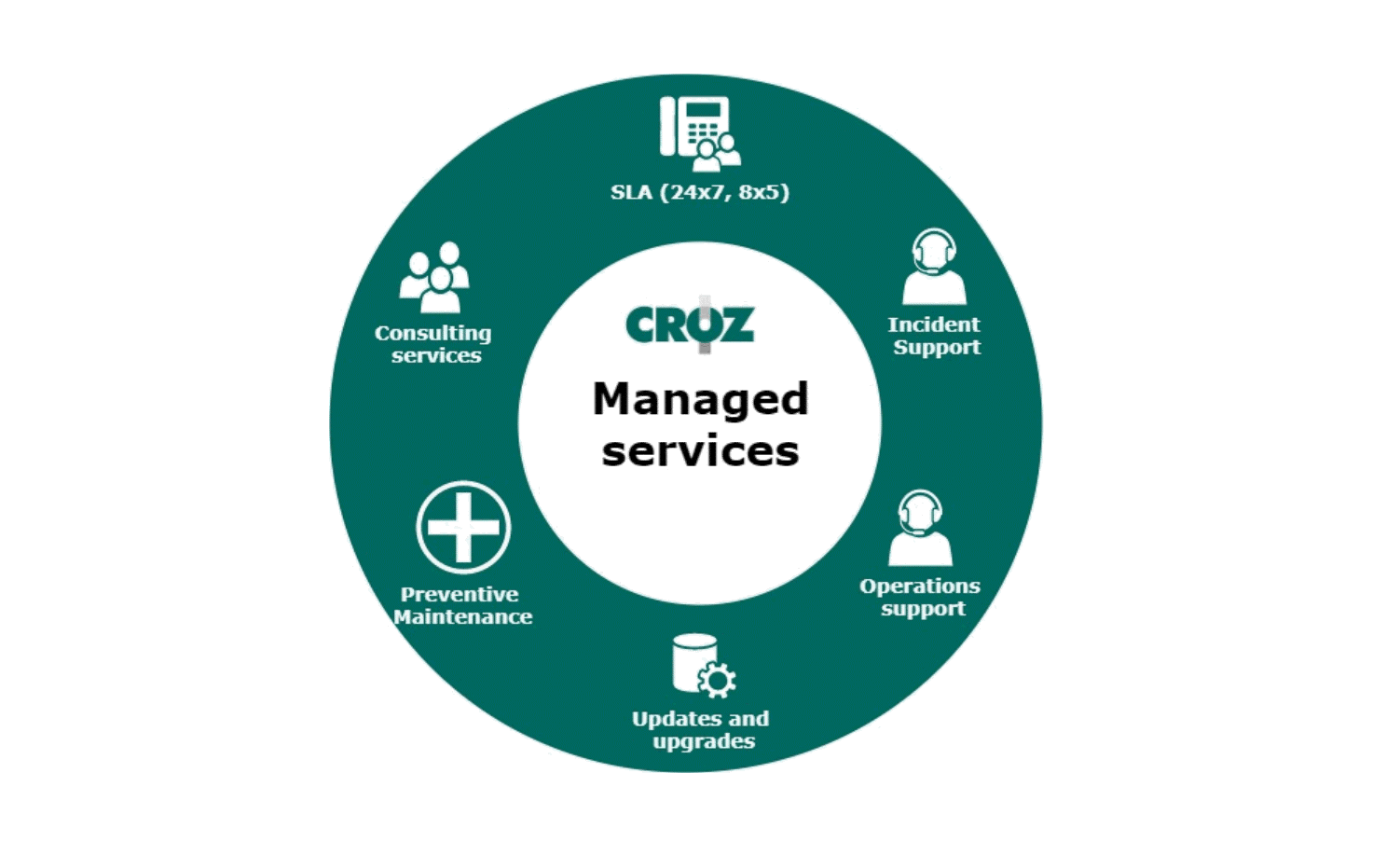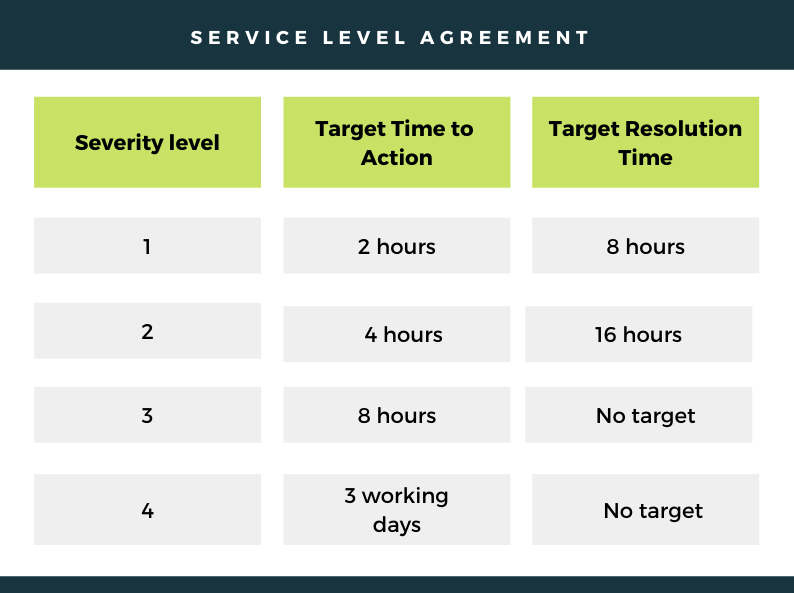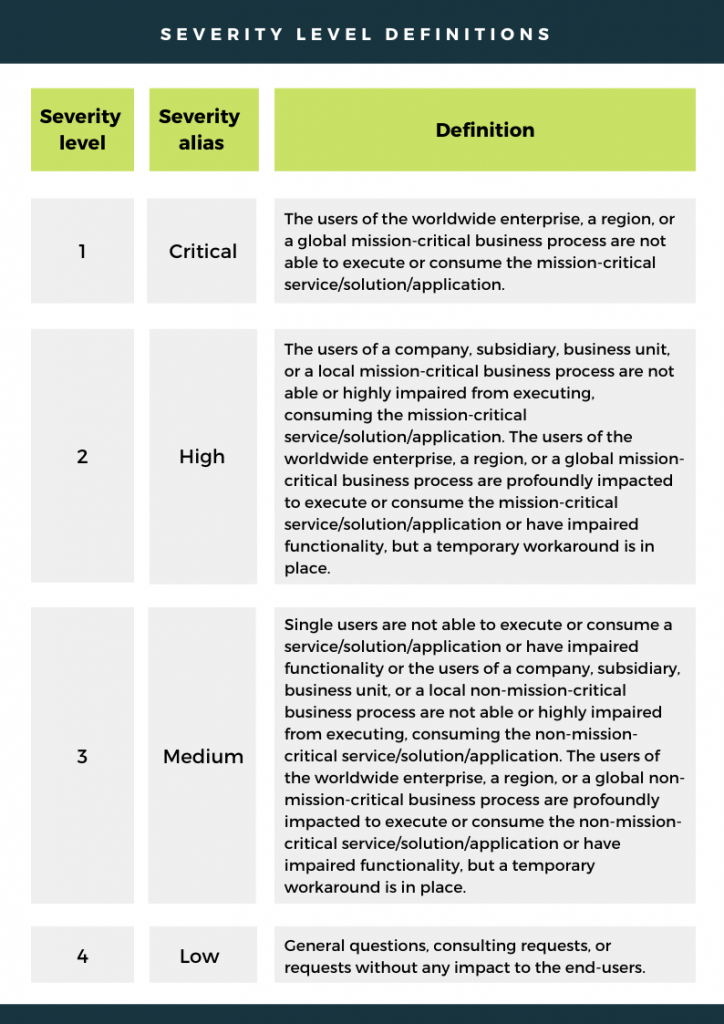„My best system engineer left last week, and together with others we lost half of our team over the previous two months. They were responsible for making sure that dozens of our IT systems are up and running around the clock. I hired one freelancer, but he moved to Australia and is no longer available. Our services vendor doesn’t have anyone available on such short notice. And then something breaks in production...“ – Mr. Complex Environment, IT Director, Big Bank Ltd
Even during small talk with our Enterprise Clients we often hear very similar statements. And it’s becoming more frequent as time goes by.
New technologies are introduced at a pace never seen before, and the skill gap is getting bigger.
Keeping enough in house personnel or recruiting new ones is becoming mission impossible. The impact of those events is enormous, and ultimately can lead to loss of revenue (angry shareholders), stress at work and overtime (angry employees), system downtime (angry customers).
With more than ten years of providing Managed Services to enterprise clients, we are very aware of those challenges, and over time we fine-tuned our Managed Services offering to address those specific pains.
Check out the details of our Managed Services offering or continue reading to find out more in detail how CROZ executes a Managed Services project.
Paperwork is smooth and precise (contracting doesn’t have to be painful)
Managed Services contracts are very straightforward. There is a monthly fee that depends on several items: SLA, number of hours for Incident and Operations support, additional services/hours.
We are big fans of transparency, so every aspect of the contract is clear, and there are no hidden costs. That way you can easily plan your Opex budget and also purchase additional pieces of work without complicated procurement procedures.

Onboarding (kick-off but also health check and recommendations)
Onboarding service is an essential project activity conducted to introduce the new support team members with your infrastructure, project goals, and procedures to follow. The purpose of this activity is to inspect the target environments (setup, configuration, dependencies, software versions, PMR procedure, incidents that occurred in the last six months, study existing documentation, become familiar with existing processes and organizational structure, and define an execution model of proposed Managed Services. This activity is performed by CROZ experts who typically spend two days on Client’s premises and around three days working remotely from our center in Zagreb.
During this exercise, we usually recommend some immediate changes and improvements to make the system more resilient and reduce the risk of incidents and downtime.
Incident Support (when something goes wrong)
Incident Support is a crucial process for any organization. Incident Management aims to minimize disruption to the business by restoring service operations to agreed levels as quickly as possible.
The focus of the Incident Support is to provide triage of all reported incidents and apply the necessary remedies. The CROZ experts collaborate closely with our client’s team and also any 3rd party which may be involved (for example, networking, security, vendors…). Note that in an Incident-only support model, the client retains responsibility for production operations of the environment under support, and also maintains their own front-line/customer (or employee) facing help desk.
A 24 x7 help desk along with the necessary Support Request Management and ticketing processes are made available, and this includes the CROZ Case Management System and incident support team.
During the onboarding phase, we also discuss the required Service Level Agreement(SLA). Together with the client, we decide if 24×7 service availability is necessary or 8×5 is enough. Additionally, we define items such as Target Time to Action, Target Resolution time, Incident Severity Levels, etc.
One typical example is as follows:

We define severity levels like this:

Find out here how CROZ Managed Services offer helps client from the UK shift their focus from day to day operations and incident solving to their core business while controlling their operational costs.
Operations Support (house cleaning and keeping things up to date)
Operations support is delivered over and above Incident Management and provides clients with the ability to bridge a skills gap or address an availability issue of an existing in-house operations support team who are supporting an entire Production environment (sometimes extended to include formal development and test environments).
Operations support activities vary considerably based on the products and technologies we support, but at a high level the elements of operations support include:
-
- Proactive infrastructure Monitoring (CPU, Memory, Disk, etc.) integrated into the CROZ Problem and Incident Management procedures
- Ownership of administration activities to ensure environmental integrity, accountability and pro-active maintenance
- System upgrades and patching in coordination with the customer, optionally acting as the customer representative in the IBM PMR process
- Co-responsibility for High Availability Requirements
- Task assignment across CROZ team, task management in Contractor’s Managed ServicesWeb-based Support Ticket SystemDeployment window management
- Maintenance window management
- Documentation management
- Client communication: regular weekly calls, daily communication
- Operations support is usually only provided during the client’s core business hours.
SLAs for Operational Support can vary based on business requirements
Service Requests and Consultancy (best practices, additional work that can’t be planned)
To make full use of Managed Services, we tend to include a frame that will enable you to purchase other services when there is a need.
Service Requests can be included in the Managed Service agreement and are over and above Operational support. Service Requests hours can be bought monthly and accrued within the current support year.
Service requests cover elements ranging from System Upgrades and Migrations (significant system releases components) to modifications or enhancements.
Consultancy services typically consist of architecture review, advising on best practices, helping in new system design, or integration with existing systems.
Let’s sum up
Thank you for reading this! I hope you now fully understand the pains that our Managed Services offering is targeting, but also how we deliver and contract such an engagement. It’s all about keeping your systems up and running around the clock, enabling you and your team to do something smart and exciting… instead of keeping the lights on – we will do this for you!
If you want to know more, check out the CROZ Managed Services offering, or get in touch to receive indicative pricing and have a chat with one of our experts.
Falls Sie Fragen haben, sind wir nur einen Klick entfernt.

